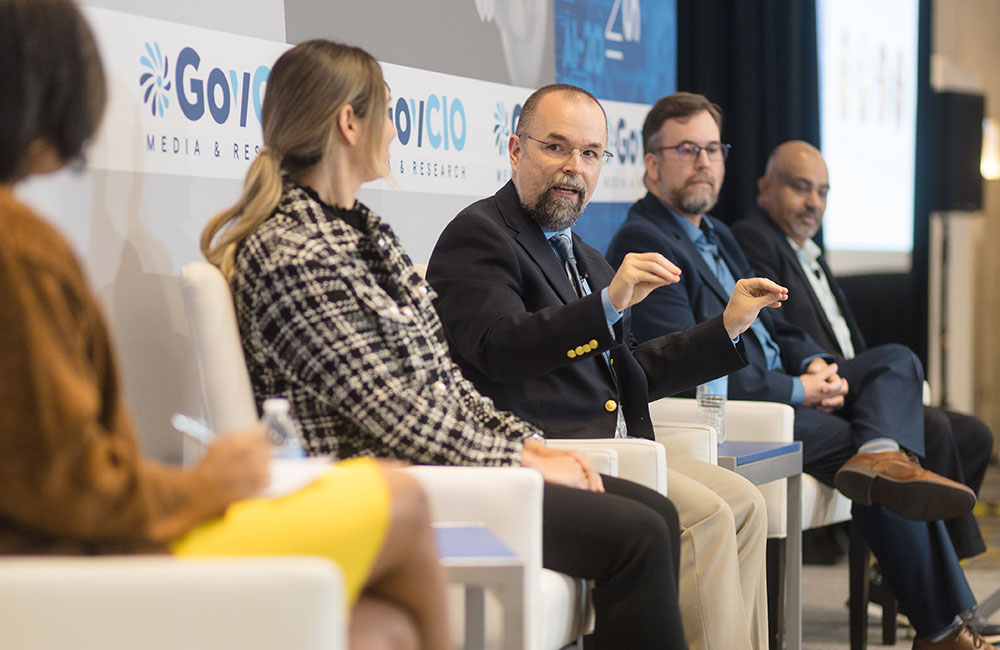Lawmakers in Self-Quarantine, Teleworking Amid Coronavirus
Legislation for remote voting is gaining traction amid a global pandemic.

As the federal government maximizes its telework policies and capabilities, lawmakers could potentially face roadblocks to teleworking themselves after coronavirus has hit Capitol Hill.
Some staff members at the U.S. House of Representatives are in self-quarantine after two lawmakers said they had tested positive for COVID-19. Staff members from both offices are working remotely until further notice as a result, and more than two dozen other lawmakers said they would self-quarantine for the next two weeks.
But to vote on legislation, many Congress members have to fly in from their home states to D.C. — contradicting current federal health guidelines from the White House and the Centers for Disease Control and Prevention to avoid public gatherings.
Earlier this month, two House members reintroduced legislation that would allow remote voting under special circumstances.
House Speaker Nancy Pelosi has opposed closing the Capitol.
Still, the House had delayed its return from recess as a precautionary measure to the coronavirus response.
The Supreme Court had also postponed all of its scheduled oral arguments for the next two months, though it had convened for a scheduled private-session today with some members calling in.
In the Senate, lawmakers have also introduced legislation to allow remote voting during a national emergency.
“We live in an age where national emergencies, public health crises, and terrorism can threaten the ordinary course of Senate business. We need to bring voting in the Senate into the 21st century so that our important work can continue even under extraordinary circumstances,” said Illinois Sen. Dick Durbin in a statement.
But Senate Majority Leader Mitch McConnell told reporters this week that new guidelines for dealing with the coronavirus would be implemented without changing Senate rules.
The CDC has recommended organizations cancel large events over 50 people. The White House’s guidance advises against gatherings of more than 10 people.
Meanwhile, eight out of 10 reported deaths in the U.S. due to COVID-19 have been adults 65 years old and older, according to CDC. Two-thirds of Congress is 60 years old and older.
The transition to online voting and telework policies have faced difficulties in the past, with some citing security and work culture as some of the most prominent impediments.
This is a carousel with manually rotating slides. Use Next and Previous buttons to navigate or jump to a slide with the slide dots
-

Data Modernization for Federal Health Enterprise
Technology and modernized data systems are opening up new frontiers for health care clinicians, agencies and patients.
37m watch -

Bird Flu Highlights Modernization Opportunities in Public Health Data
Experts are expanding data sharing and leveraging GIS technology to improve bird flu tracking, prediction and response.
5m read -

HIMSS: AI's Role in Health Care Innovation, EHR Compliance
Federal agencies and industry partners are increasingly exploring AI use to improve health care.
13m watch -

HIMSS: HL7 Standards Boost Health Data Interoperability
For over 30 years, Health Level Seven International (HL7) has set the standard for electronic health information worldwide.
13m watch





